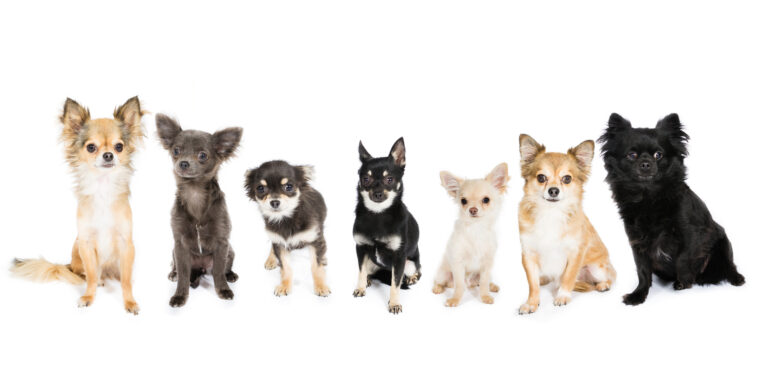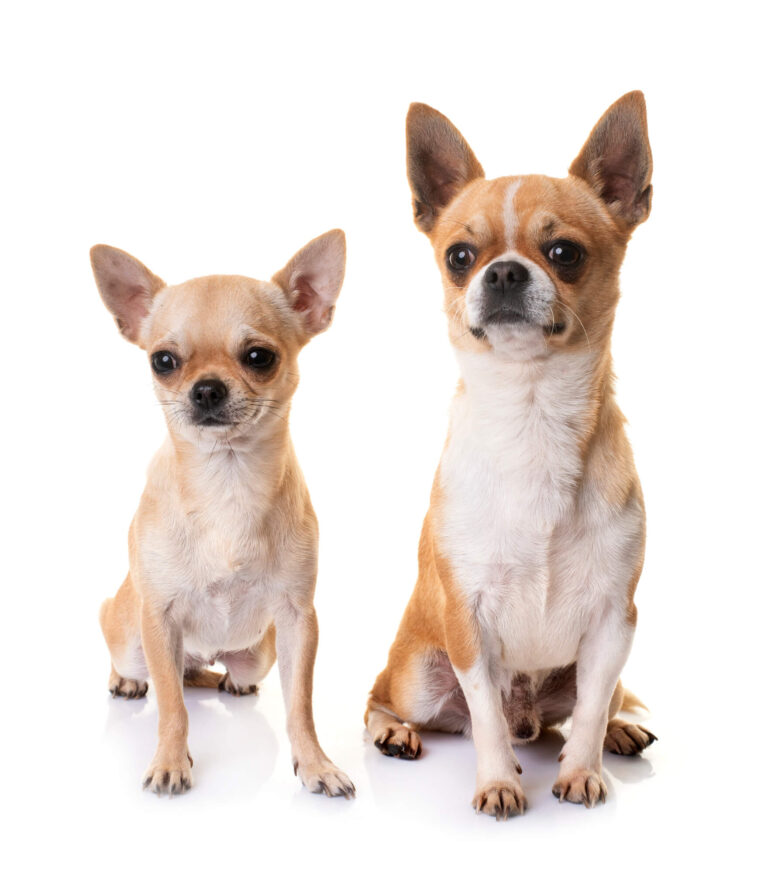Deer Head Chihuahuas: The Ultimate Guide
If you’re a fan of small dog breeds, you may have heard of deer-head Chihuahuas.
While they may not be as well-known as their apple-head counterparts, deer-head Chihuahuas have a loyal following and are the perfect companions.
We are the proud owners of a deer-head Chihuahua named Leo and we’ve had the pleasure of experiencing firsthand the unique characteristics and quirks of these beloved pups.
In this blog post, we will delve into the world of deer-head Chihuahuas, discussing their characteristics, temperament, and tips on how to care for them.
By the end, you’ll be able to determine whether this delightful dog is the right fit for you.
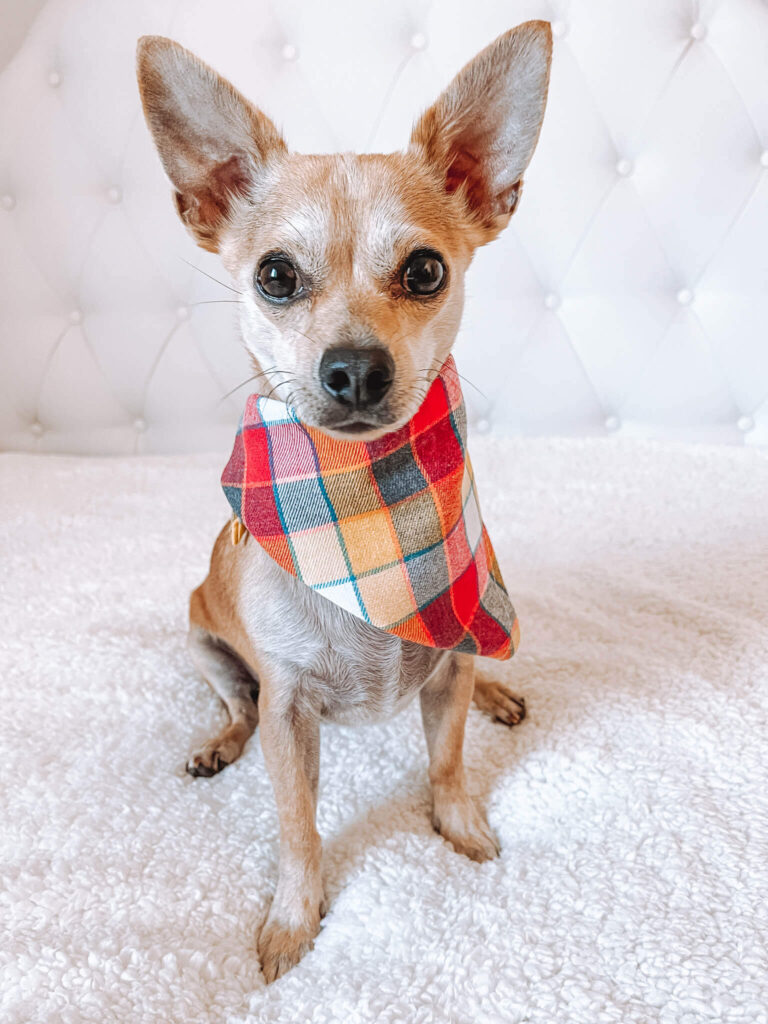
Origin
Originating in Mexico, Chihuahuas are believed to be descendants of the Techichi, a breed kept by the Aztecs for both companionship and religious purposes.
In the late 1800s, Chihuahuas made their way to the United States, and they swiftly won the hearts of dog lovers.
Chihuahuas gained recognition from the American Kennel Club (AKC) in 1904, solidifying their status as a beloved toy breed.
Interestingly, there are 7 different Chihuahua types, with deer head Chihuahuas being named after their deer-like head shape.
While deer head Chihuahuas are not recognized by the AKC (only apple-head Chihuahuas with long-haired coats or short-haired coats), they are still highly sought after by dog lovers and breeders alike.

Appearance
Head: long and slender muzzle, tapers to a point at the end
Eyes: large, almond-shaped, expressive eyes. The color of their eyes can range from dark brown to light brown, and sometimes even hazel.
Size: they typically weigh 3 – 6 lbs and stand 5 – 8 inches tall at the shoulder. Deer-head Chihuahuas can be bigger than apple-heads.
Ears: large, erect ears. Sometimes one or both ears can be floppy
Coat: a smooth shiny coat or a long, flowy coat that can be wavy or straight
Colors: Chihuahuas come in a wide range of colors and markings. The American Kennel Club recognizes 9 standard colors for Chihuahuas and 6 markings.
Standard colors recognized by the AKC:
- Black
- Black and tan
- Blue and tan
- Chocolate
- Chocolate and tan
- Cream
- Fawn
- Fawn and white
- Red
Standard markings recognized by the AKC:
- Black brindling
- Black mask
- Black sabling
- Spotted on white
- White markings
- Merle markings

Temperament
Deer-head Chihuahuas are known for their sassy and confident attitude.
They are energetic and alert, always ready to play and explore.
Despite their small size, they can be protective of their owners.
These dogs are loyal and feisty, but they can also be aggressive towards strangers or other animals if not properly socialized.
They are known to bark a lot, which can be a problem for some owners.
However, with proper training and socialization, they can be well-behaved and obedient.
Deer-head Chihuahuas require a lot of attention and affection from their owners with many being prone to separation anxiety.
They thrive on human interaction and can become anxious or destructive if left alone for too long.
This breed is not recommended for those who are away from home for long periods of time.
They also may not be the best fit for households with young children due to their delicate size.
Some Chihuahuas tend to get a tad nervous around fast-moving kids.
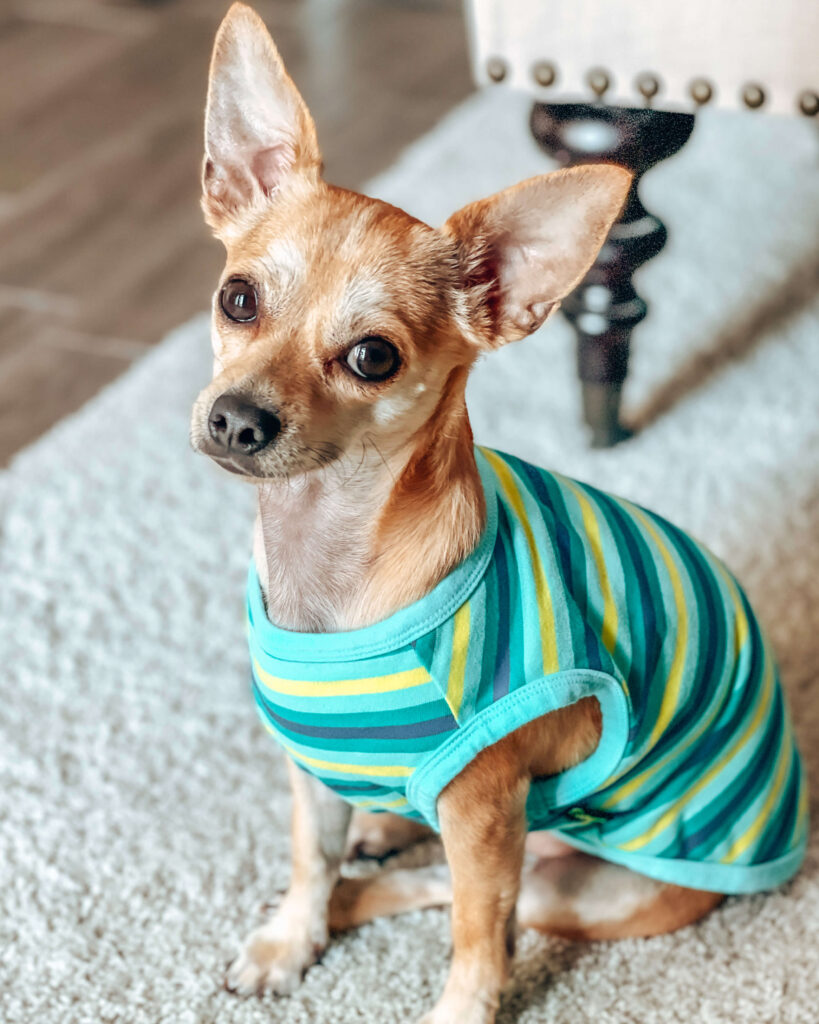
Health and Lifespan
Common Health Issues
As with any breed of dog, deer-head Chihuahuas are prone to certain health issues.
Some of the most common ones are listed below.
- Hypoglycemia: This condition happens when a Chihuahua’s blood sugar level drops too low, leading to symptoms like weakness, lethargy, and seizures. To steer clear of this, feed your Chihuahua frequent small meals throughout the day to keep their sugar levels stable.
- Patellar Luxation: This happens when the kneecap dislocates from its normal position. It can cause pain, limping, and arthritis if left untreated. Sometimes, surgery is needed to fix severe cases of patellar luxation.
- Collapsed Trachea: This is a condition where the trachea (windpipe) collapses, which can cause coughing and difficulty breathing. If your Chihuahua coughs or has breathing troubles, seek immediate veterinary attention. This is different from reverse sneezing, which is harmless.
- Dental Problems: Chihuahuas often deal with dental issues like gum disease and tooth loss. To keep those pearly whites in good shape, make a habit of regular teeth brushing and toss in some dental chews.
- Eye Problems: Chihuahuas are susceptible to eye issues, such as cataracts, glaucoma, and dry eyes. Keep an eye out for signs like redness or unusual eye gunk, and don’t hesitate to get them checked by the vet if something seems off.
Life Expectancy
With proper care and attention, deer head Chihuahuas can live 12 – 20 years.
However, their lifespan can be affected by several factors, including genetics, diet, exercise, and overall health.
Spike, the oldest Chihuahua on record, lived a remarkable 23 years!
To ensure your deer head Chihuahua lives a long and healthy life, provide them with a balanced diet, regular exercise, and plenty of love and attention.
Regular visits to the vet for check-ups can also help catch any potential health issues early on and ensure your dog stays healthy throughout their life.
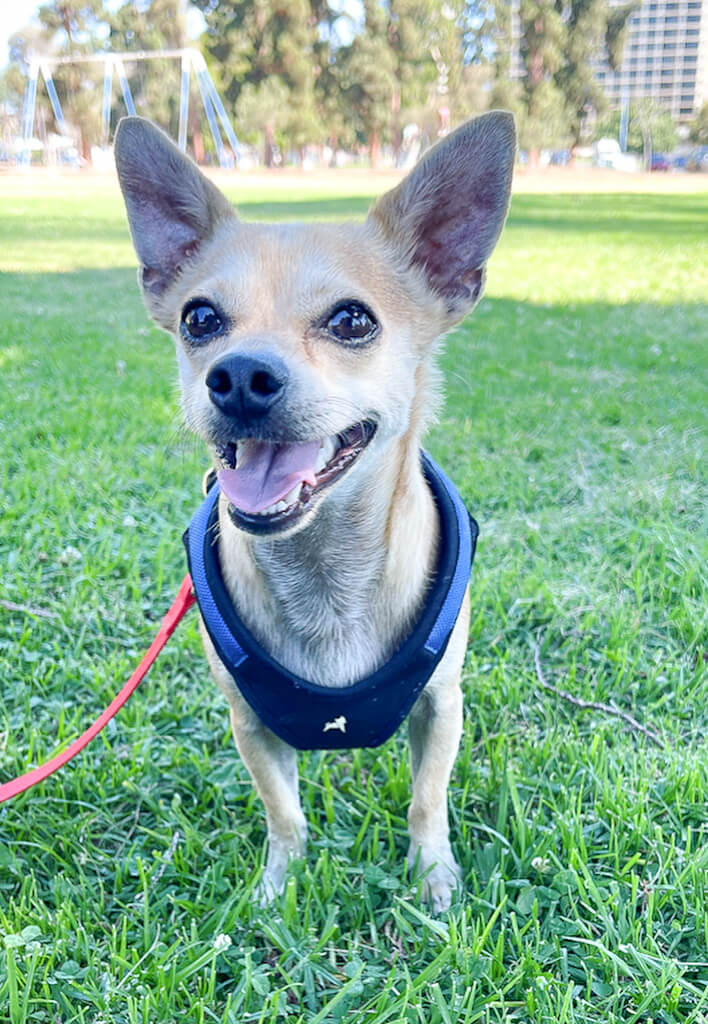
Care and Maintenance
Dietary Requirements
Deer head Chihuahuas require a balanced diet with high-quality dog food
A Chihuahua’s metabolism is super fast.
Instead of 1 or 2 meals a day, feeding them 3-4 small meals is often recommended to help prevent hypoglycemia.
This helps keep their blood sugar levels more consistent throughout the day.
We know those cute puppy eyes can make it hard to resist giving them treats.
But feeding too many treats or food, and your Chihuahua might start to show it on the scale.
These little guys are prone to packing on the pounds.
Tip: keep tabs on your Chihuahua’s weight. Overfeeding or underfeeding can stir up some health troubles.
Exercise Needs
While deer head Chihuahuas are small, they still need regular exercise to stay healthy.
Aim for at least 30 minutes of exercise per day.
Daily walks or some fun play sessions will keep their tails wagging.
Chihuahuas, being so small, have delicate bones and joints, so don’t go overboard with the exercise.
It’s all about balance.
Tip: our exercise post is like a treasure chest of tips, including a handy sample fitness plan. Plus, who says exercise can’t be a blast? Include some of these fun games!
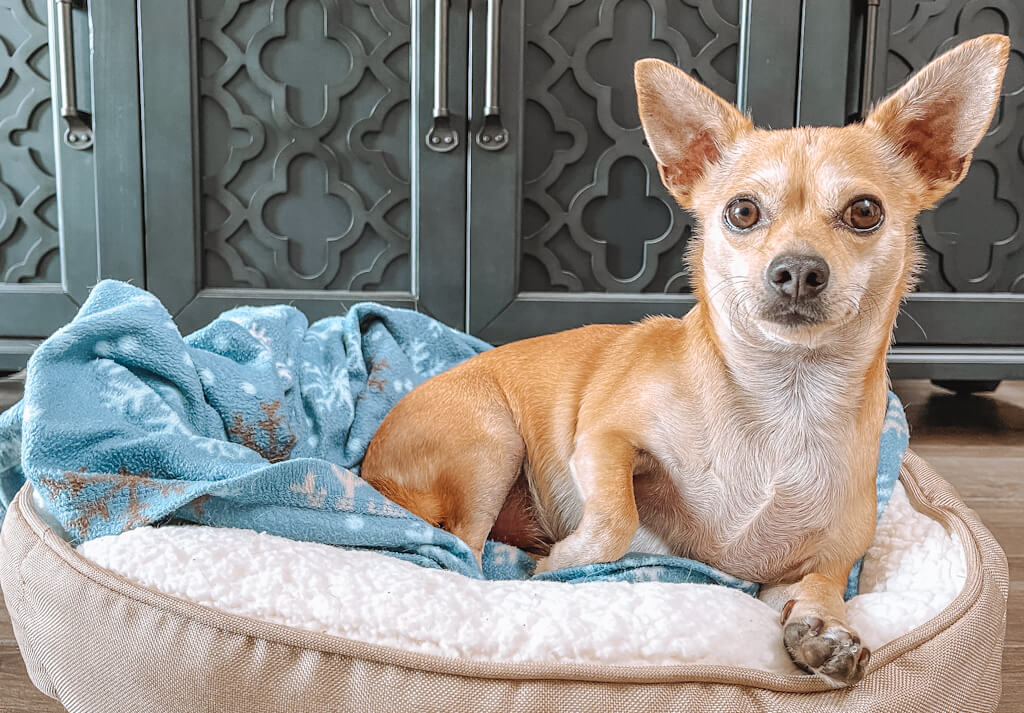
Grooming
Deer head Chihuahuas have short smooth coats that require minimal grooming.
Brush their coat once a week to remove any loose fur, prevent matting, and reduce shedding.
Trim their nails regularly and clean their ears to prevent infection.
Bathtime should happen every 1 to 6 weeks will keep their coat looking its absolute best.
Tips: opt for a grinder instead of traditional nail clippers. And if you really want to turn nail time into a treat, spread some peanut butter on a lick mat to keep your pup happily occupied.
Shedding
Deer head Chihuahuas shed moderately throughout the year and they are not hypoallergenic.
Establish a regular brushing routine with your Chihuahua and invest in a good de-shedding shampoo to minimize shedding.
Be prepared to vacuum frequently to keep your home clean.
Tip: keep the vacuum handy, stock up on lint rollers, and consider adding an air purifier to your arsenal to keep those stray hairs at bay.

Space Requirements
Deer head Chihuahuas are small and pretty adaptable.
They can be kept in apartments or small homes.
However, they still need space to play and get the zoomies.
Puzzles and interactive toys are the key to keeping them content in close quarters.
Provide them with a designated area for their bed and toys, and make sure they have enough space to move around comfortably.
Tip: check out these boredom-busting games that are perfect for indoor play.
Socialization
Socialization is an important aspect of raising a deer head Chihuahua.
It is crucial to expose your dog to different people, animals, and environments from an early age.
This will help your dog become more confident and well-adjusted later in life.
When socializing your deer head Chihuahua, be patient, consistent, and reward your dog for good behavior.
Some dogs may take longer to adjust to new situations than others.
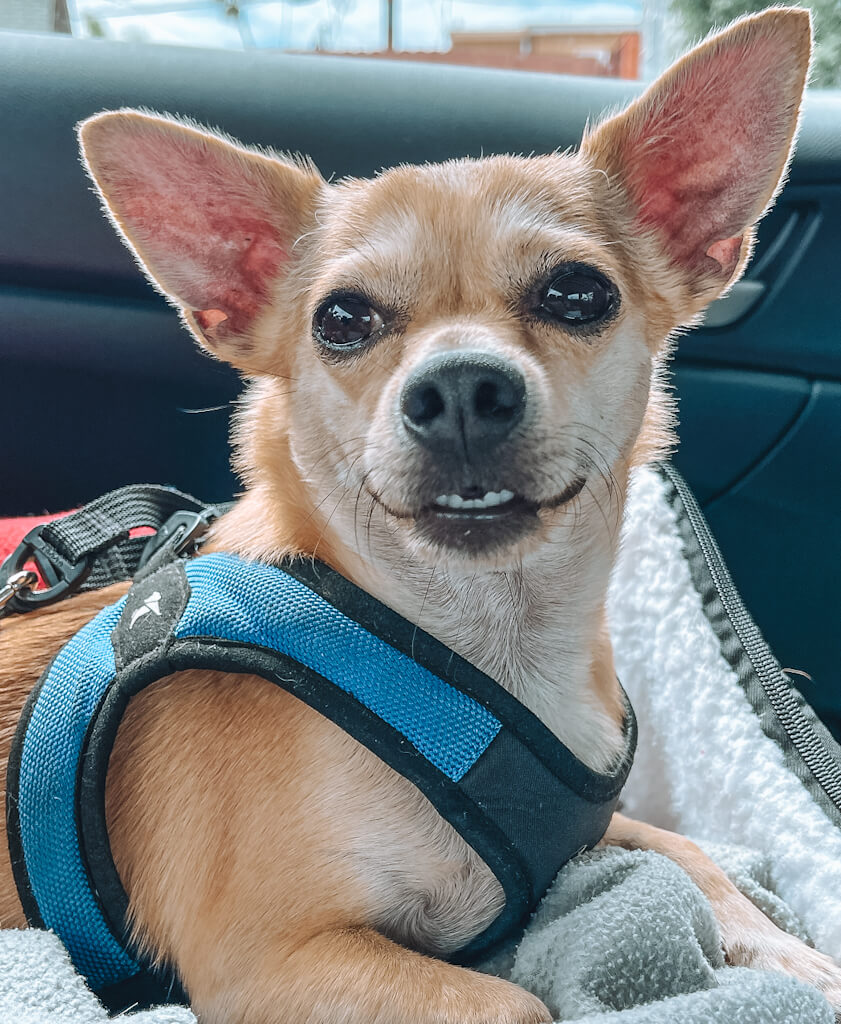
Training
Training a Deer Head Chihuahua can be challenging, but with patience and consistency, you can teach your dog obedience and good behavior.
Chihuahuas are quite intelligent but some can be stubborn and independent.
Start training your dog as soon as possible, preferably when they are still a puppy, as it will be easier to teach them good habits at a young age.
Use positive reinforcement techniques, such as treats and praise, to reward good behavior.
Potty training tends to take Chihuahuas a bit longer to learn.
Teaching basic obedience commands, such as sit, stay, and come, is also important.
If you have your eye on an older pup, don’t worry.
We welcomed our Chihuahua, Leo, into our home when he was already 2 years old, clueless about his name or any commands.
And now a pro at numerous tricks.
So, fear not – older Chihuahuas can still pick up new tricks and adapt like champs.

Finding a Deer Head Chihuahua
If you are interested in adding a deer-head Chihuahua to your family, there are two main ways to go about it: adoption or purchasing from a breeder.
Each option has its own advantages and disadvantages, and it’s important to do your research before making a decision.
Adoption
Adopting a deer-head Chihuahua can be a great option for those who want to give a loving home to a dog in need.
You can check with your local animal shelter or rescue organization to see if they have any available for adoption.
When considering adoption, it’s essential to keep a few factors in mind:
- Adoption Fees: The cost of adoption can vary depending on the organization, but it often includes expenses like spaying/neutering, vaccinations, and other medical care. It’s important to be aware of these fees when planning to adopt.
- Temperament: Spending time with the dog before adopting is crucial to ensure their temperament aligns with your lifestyle and preferences. This interaction can help determine if the dog is a good fit for your family.
- History: Inquire with the organization about any available information on the dog’s background. This may include details like whether the dog was previously house-trained or if they have any pre-existing medical conditions. While you may not always have extensive information about the dog’s past, any available insights can be valuable.
Petfinder is a fantastic resource to find an adoptable Chihuahua near you.
Some top Chihuahua rescues are:
- Second Chance Chi – Salt Lake City, UT
- Chihuahua Rescue & Transport – many states
- Ay Chihuahua Rescue – Austin, TX
Breeders
Finding a reputable breeder can be a good option for those who want a puppy or a specific color, like one of these rare Chihuahua colors.
If you decide to purchase a Chihuahua from a breeder, consider these factors:
- Reputation: Conduct thorough research to identify a reputable breeder. Look for breeders with a track record of prioritizing the health and overall welfare of their dogs. Visiting the breeder in person can help assess their reputation.
- Health: Make sure the breeder has had the dog’s health checked by a veterinarian and can provide documentation of any necessary vaccinations and tests.
- Cost: Be prepared to pay a higher price for a dog from a reputable breeder. This is because they invest a lot of time, money, and effort into breeding healthy and well-tempered dogs.
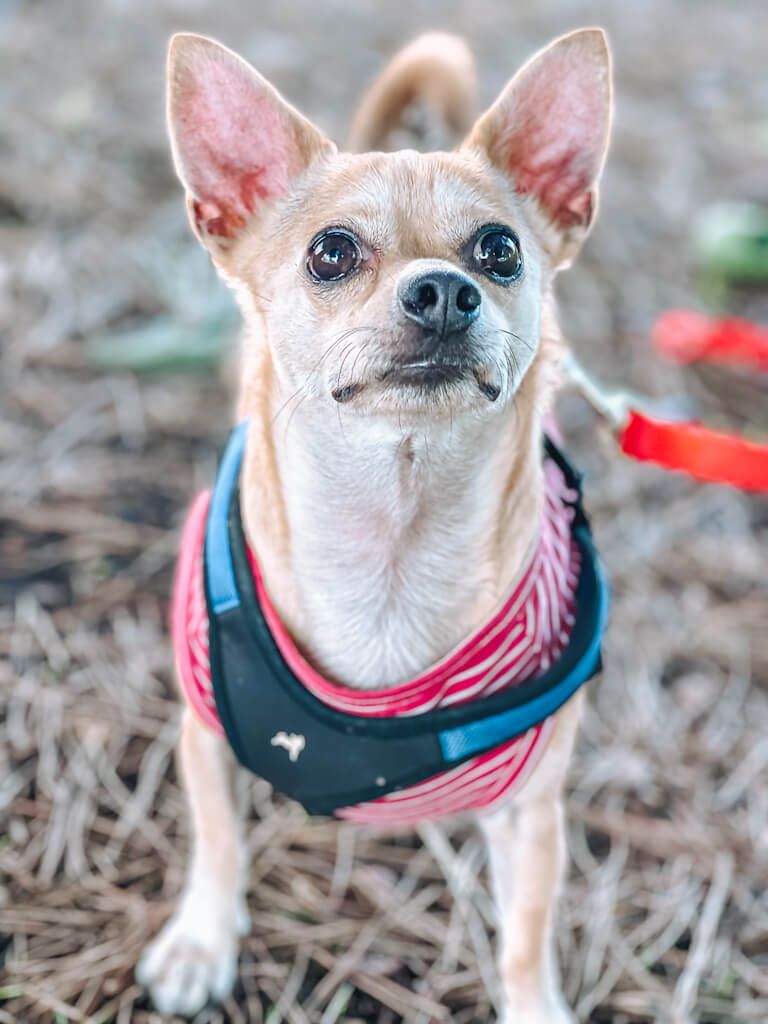
Preparing to Bring Home a Chihuahua
Bringing home a new dog is always exciting, but you’ll want to make sure you’re fully prepared to welcome them into your home.
Here are some tips to help you prepare for your new Chihuahua.
- Chihuahua-Proof Your Home: Just as you would baby-proof your home, remove any potential hazards that could be harmful to your Chihuahua. This includes small objects that could be swallowed, toxic plants, chemicals, and cords that could be chewed.
- Designate a Safe Space: Create a designated area within your home where your Chihuahua can eat, sleep, and play. Add a comfy bed, food and water dishes, and some toys. This will give them a sense of security and help them feel more comfortable in their new surroundings.
- Gather Necessary Supplies: Before bringing your Chihuahua home, make sure you have all the essential supplies ready. These include high-quality dog food, food and water dishes, a leash and harness, poop bags, an identification tag, a dog bed, a crate, and a dog car seat.
- Grooming Tools: Apple head Chihuahuas need regular grooming. Invest in the proper tools, including a brush, nail clippers, dog shampoo, and ear cleaner.
- Dog-Proof Your Yard: If you have a yard, ensure it’s securely fenced to prevent your Chihuahua from escaping. Check for any gaps or openings in the fence that they could squeeze through.
- Potty Area and Schedule: Chihuahuas are small dogs with small bladders, so it’s important to have a designated potty area and schedule. You should take your Chihuahua outside to potty frequently (or use pee pads), and reward them after going.
- Vet Visit: Schedule a veterinary check-up shortly after bringing your Chihuahua home. This establishes their health baseline and ensures they are up to date on vaccinations and preventive care.
- Socialization: Gradually introduce your Chihuahua to different people, animals, and environments to promote socialization and build their confidence.
Summary
If you’re looking for a unique and adorable pet, a deer-head Chihuahua might be the perfect choice for you.
These dogs are known for their distinctive appearance, which includes a longer snout and more prominent ears than the traditional apple-head Chihuahua.
This comprehensive guide has covered everything from their charming appearance and spirited temperament to the essential aspects of caring for them.
With proper grooming and care, these pups can live long, healthy lives and make great companions for years to come.
FAQs
What Is the Difference Between an Apple Head and a Deer Head Chihuahua?
Apple-Head Chihuahuas are the more traditional and recognized of the two types. They are known for their round, apple-shaped heads and short snouts. Deer-Head Chihuahuas have longer snouts and a more elongated head shape, resembling that of a deer. They also have longer legs.
Are Deer Head Chihuahuas Rare?
No, deer-head Chihuahuas aren’t rare but since the AKC doesn’t recognize the deer-head shape, some breeders may not sell them.
How Much Is a Deer Head Chihuahua?
The cost of a deer-head Chihuahua can vary depending on several factors like the breeder, location, and lineage. On average, you can expect to pay anywhere from $500 to $2,500. However, keep in mind that some breeders may charge more for rare colors or exceptional bloodlines.
Related posts:
- 7 Types of Chihuahuas: Full Guide With Pictures
- Short-Haired Chihuahuas: The Ultimate Guide
- Long-Haired Chihuahuas: The Ultimate Guide
- The 5 Rarest Chihuahua Colors + Pictures
- Apple Head Chihuahuas: The Ultimate Guide
- 6 Best Beds for Chihuahuas (2023)
- 5 Best Dog Treats for Chihuahuas in 2023 (Healthy)




